In today's dynamic business environment, small enterprises often struggle to generate leads on a limited budget.
Lead generation, the process of attracting and converting potential customers into tangible business opportunities, is paramount for the growth and sustainability of any business, regardless of its size.
In this guide, we delve into the intricacies of lead generation tailored specifically for small businesses operating within financial constraints.
In this article:
- Know Your Target Audience
- Optimize Online Presence
- Content Marketing
- Email Marketing
- Networking and Partnerships
- Utilize Cost-Effective Advertising
- Implement Lead Tracking and Analytics
- Customer Relationship Management (CRM) Systems
- Focus on Customer Retention
- Measure and Adjust Strategies
It is essential to understand the significance of identifying and targeting the right audience, optimizing online presence, and harnessing cost-effective strategies.
This comprehensive exploration focuses on practicality and efficiency. It provides actionable tips for entrepreneurs seeking to maximize their lead-generation efforts without spending a fortune.
For example, a gym owner employs targeted gym marketing strategies to attract busy professionals in a bustling city, offering early-morning/evening classes, quick workouts, and social media marketing. This focus on convenience attracts new members and boosts revenue.
From leveraging content marketing and email campaigns to strategic networking and affordable advertising, this guide aims to empower small businesses with the tools they need to navigate the intricate world of lead generation.
As we embark on this journey, we underscore the importance of adaptability, data-driven decision-making, and a steadfast commitment to customer satisfaction to ensure a sustainable and thriving business ecosystem.
Know Your Target Audience
Knowing your target audience is fundamental for effective lead generation, especially for small businesses operating on a budget. To start, it's essential to define ideal customer profiles clearly.
This involves creating detailed personas encompassing demographic information, preferences, behaviors, and pain points. By understanding who your customers are, you can tailor your lead generation strategies to address their specific needs.
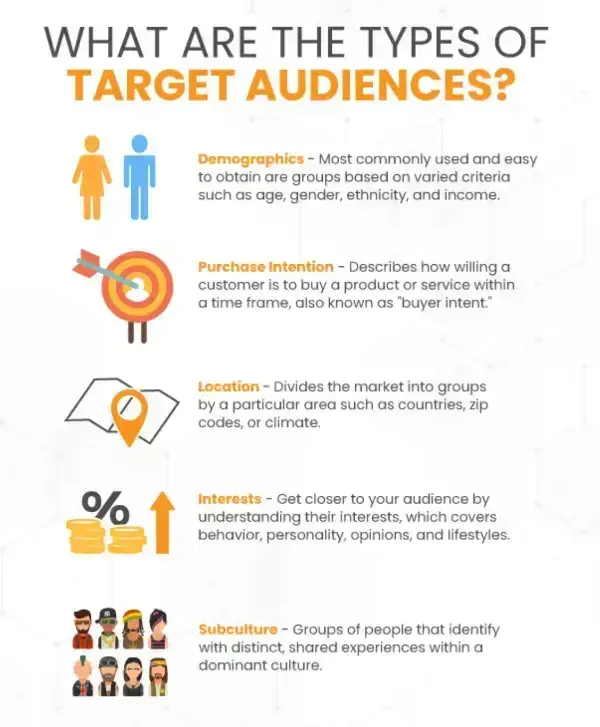
Conducting thorough market research is another crucial aspect of knowing your target audience.
This involves analyzing industry trends, competitor strategies, and customer feedback. By staying informed about your market, you can identify gaps in the offerings or areas where your business can excel.
Furthermore, identifying key demographics and behaviors helps refine your approach.
By pinpointing where your target audience spends time online, their preferred communication channels, and their challenges, you can optimize your marketing efforts to reach them effectively.
This knowledge also aids in creating personalized, relevant content, increasing the likelihood of capturing potential leads' attention.
In summary, a deep understanding of your target audience enables the development of targeted, cost-effective lead generation strategies that maximize the impact of your efforts within a limited budget.
Optimize Online Presence
Establishing a strong online presence in the digital age is essential for small businesses seeking to generate leads on a budget.
This section emphasizes key strategies to optimize the online presence, ensuring maximum visibility and engagement with the target audience.
To begin with, creating a user-friendly website serves as the foundation. To ensure professional results, you might consider the option to hire a web development agency.
A well-designed and responsive website enhances the user experience and boosts search engine rankings.
Social media platforms play a pivotal role in reaching and engaging with the target audience. Small businesses should strategically choose and leverage platforms where their audience is most active.
Consistent and valuable content sharing on social media helps build brand awareness and trust.
Additionally, small businesses can observe strategies from companies like AstroSafe, which effectively optimize their online presence through a user-friendly website and targeted SEO practices to attract educators and parents.
This example illustrates the importance of aligning digital presence with the target audience's specific needs and search behaviors.
Additionally, maintaining an active blog and exploring guest posting opportunities can position the business as an industry authority.
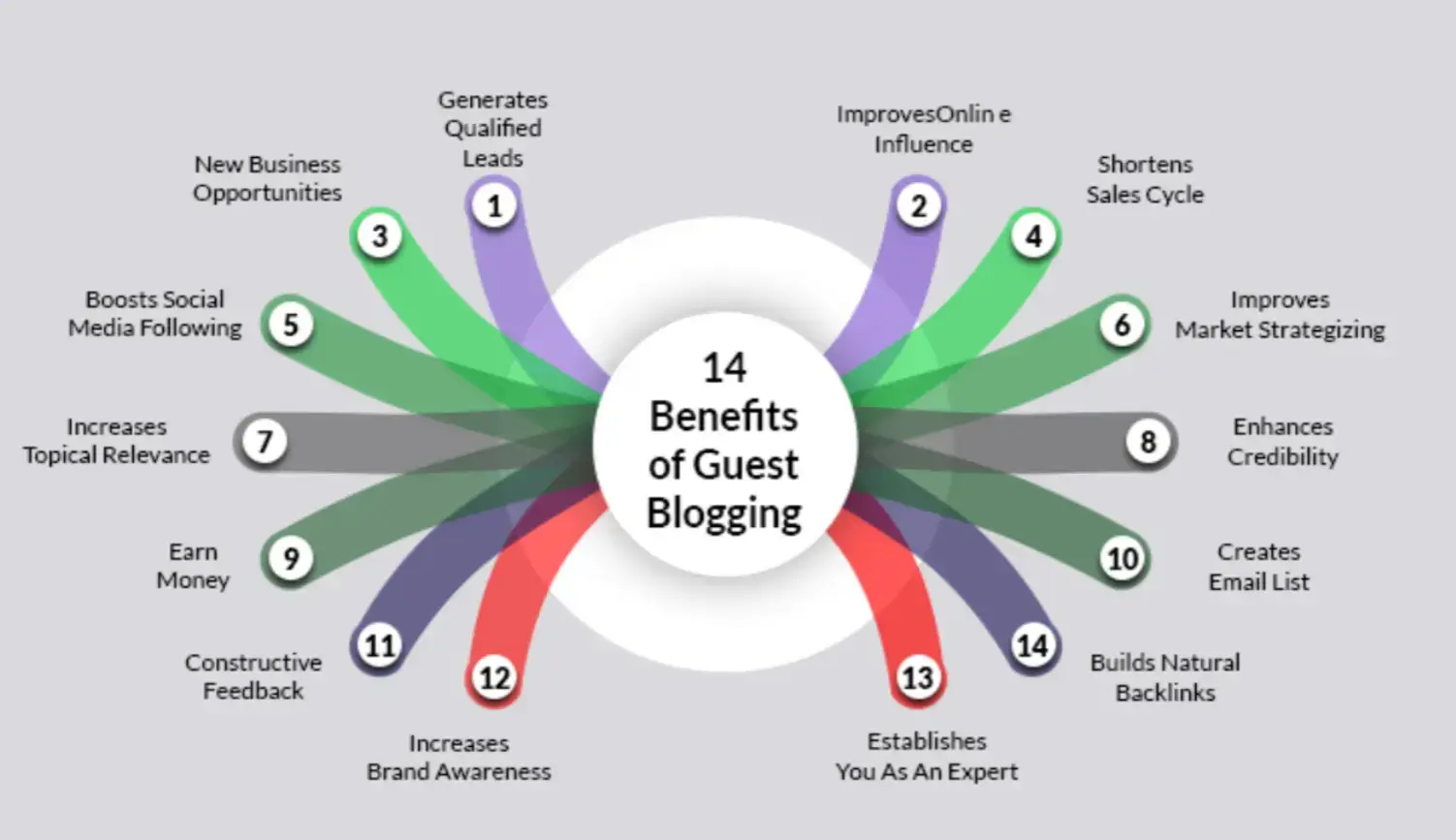
This content educates the audience and improves search engine rankings through relevant keywords.
Optimizing online presence involves a multi-faceted approach that includes a well-designed website, strategic social media, and consistent content creation to establish the business as a credible and accessible resource within its industry.
Content Marketing
Content marketing is a pivotal strategy for small businesses aiming to generate leads on a budget. This approach involves creating and distributing valuable, relevant, and consistent content to attract and engage a target audience.
Developing high-quality content that addresses potential customers' needs and interests establishes a business as an authoritative and trustworthy source within its industry.
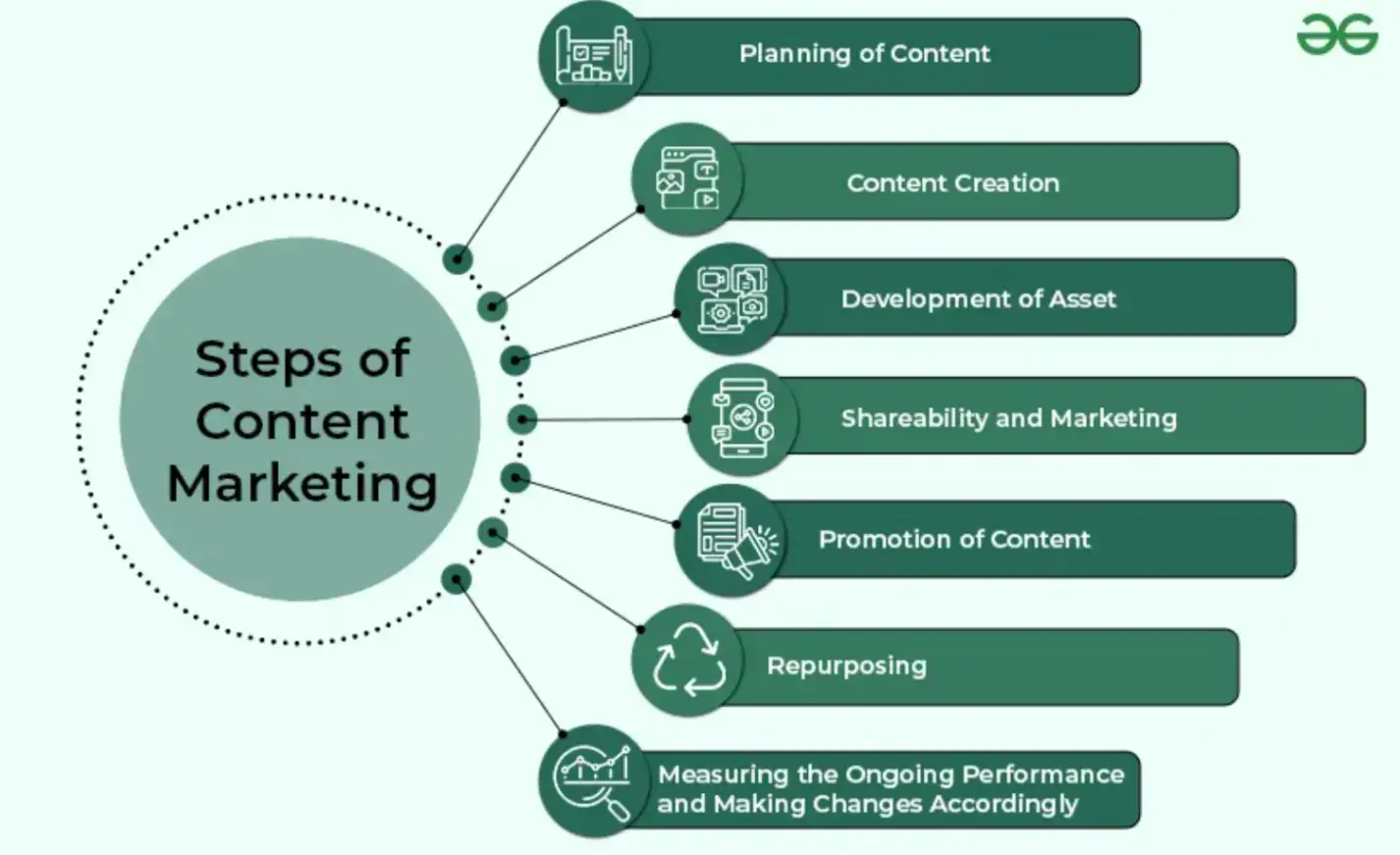
While earlier creating engaging content was time-consuming and expensive, now, thanks to AI content creation tools, you can create content, images, videos, and other media for all channels of your content marketing.
Alongside content creation, equal effort must be made to distribute content to ensure it reaches as many people as possible.
Additionally, creating lead magnets such as eBooks, whitepapers, or webinars provides valuable resources that can be exchanged for contact information, enabling businesses to nurture leads.
Effective content marketing helps attract initial interest and fosters long-term relationships with potential customers. The emphasis should be on providing value rather than on promoting content.
Just as a trash can is essential for managing waste efficiently, effective content marketing is crucial for managing customer relationships and business growth.
Consistent, strategic content creation, coupled with effective distribution channels, enhances brand visibility, positioning the business as an industry authority and a go-to resource for its audience. This ultimately contributes to successful lead-generation efforts within a limited budget.
Email Marketing
Email marketing is a powerful and cost-effective strategy for small businesses aiming to generate leads on a budget.
Building a targeted email list is the first crucial step, involving the collection of contact information through website sign-ups, events, and other customer interactions.
Utilizing segmentation based on demographics or behavior helps tailor messages for maximum impact.
Automation plays a pivotal role in email marketing for lead generation. Automated follow-up sequences nurture leads over time, delivering relevant content and guiding prospects through the sales funnel. This ensures a consistent and personalized communication strategy without requiring excessive manual effort.
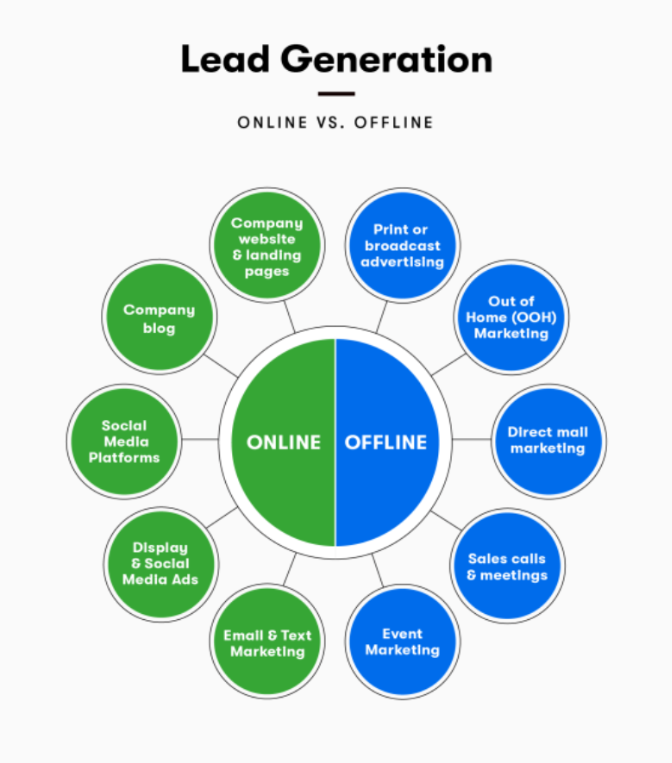
Strategic use of subject lines, engaging visuals, and a clear call to action increases the likelihood that recipients open emails and take desired actions. It's crucial to balance informative content and avoid an overly promotional tone.
Regularly analyzing email campaign performance using metrics such as open rates, click-through rates, and conversion rates allows businesses to refine their strategies and adapt to changing market dynamics.
Overall, email marketing provides an efficient and budget-friendly avenue for small businesses to build relationships with potential customers and drive lead generation.
Networking and Partnerships
Networking and partnerships are pivotal in effective lead generation for small businesses operating on a budget.
Companies can establish meaningful connections with potential clients, partners, and collaborators by actively participating in local events, industry conferences, and networking functions.
Face-to-face interactions provide an opportunity to showcase products or services, fostering trust and credibility within the community.

Moreover, forming partnerships with complementary businesses can create mutually beneficial relationships.
Collaborating with companies that share a similar target audience but offer non-competing products or services can lead to shared marketing efforts, expanding reach without incurring high costs.
These partnerships may involve co-hosting events, cross-promoting each other's offerings, or even establishing formal referral programs.
In addition to local networking, businesses can explore online partnerships through industry-specific platforms and forums.
Virtual collaborations, joint webinars, or co-authored content can effectively expand the digital footprint and reach a wider audience.
Ultimately, networking and partnerships provide access to new leads and help build a supportive business ecosystem.
Small businesses can leverage these relationships to enhance brand visibility and credibility and, most importantly, generate leads cost-effectively.
Utilize Cost-Effective Advertising
In the realm of lead generation for small businesses, adopting cost-effective advertising strategies is paramount for maximizing returns on a limited budget.
Firstly, leveraging platforms like Google Ads and social media advertising enables businesses to target specific demographics, ensuring their ads reach the most relevant audience. This targeted approach increases the likelihood of capturing leads and minimizes unnecessary expenditures.
In addition, collaborating with a top influencer marketing agency can further amplify the reach of your lead generation efforts by tapping into established networks and audiences, enhancing visibility and engagement.
Furthermore, small businesses can explore cost-effective online ad campaigns focusing on specific keywords or niches, optimizing the budget for maximum impact.
Investing in well-placed, visually appealing ads on social media platforms, where many potential leads spend their time, can be particularly effective without breaking the bank.
Additionally, considering influencer marketing a cost-effective strategy can provide access to a larger audience through partnerships with individuals with significant followings.
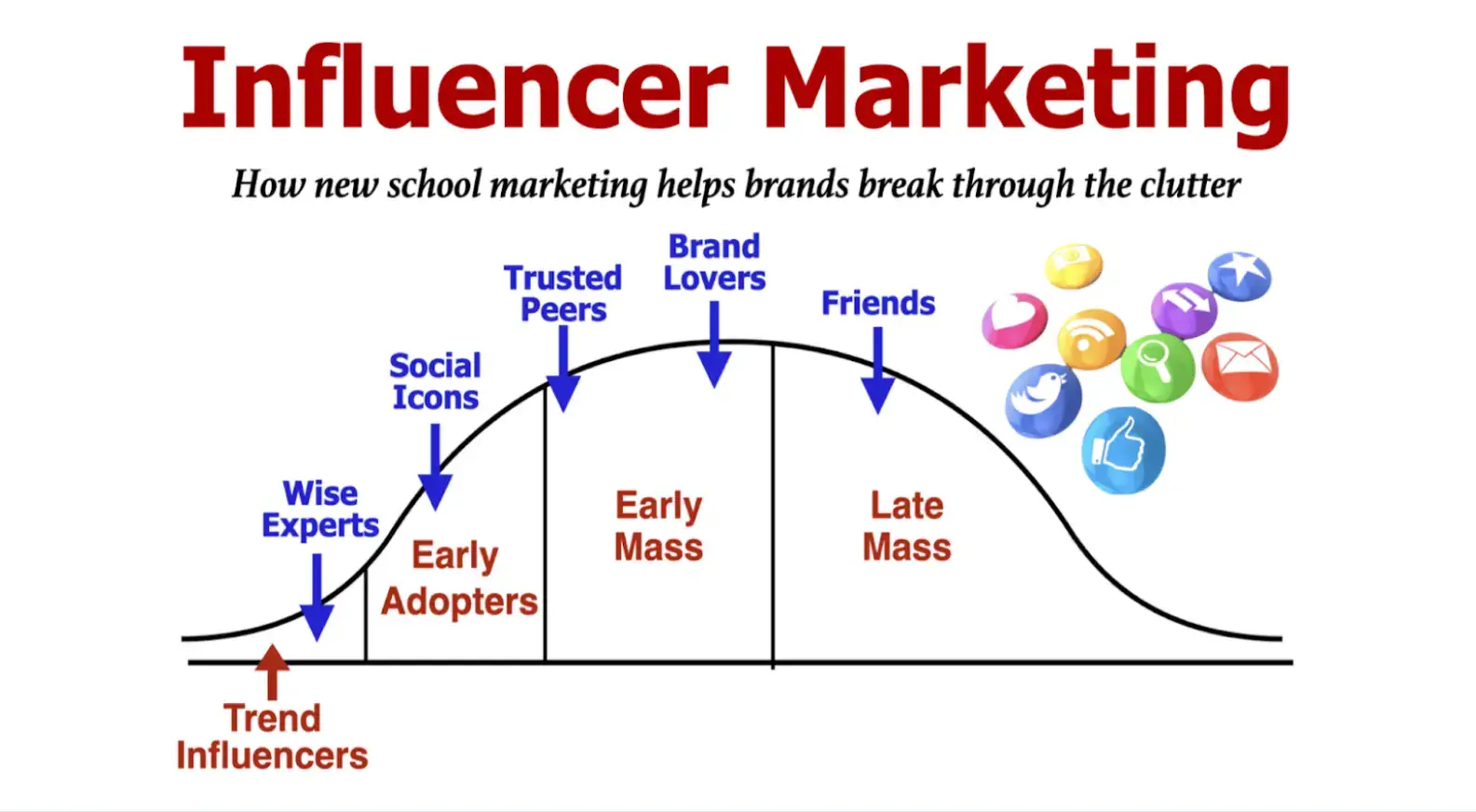
Ultimately, the key to cost-effective advertising lies in strategic planning, targeting the right platforms, and continuously monitoring and adjusting campaigns based on performance data.
Small businesses can significantly impact lead generation by staying mindful of budget constraints and creatively leveraging the diverse, accessible advertising options in the digital landscape.
Implement Lead Tracking and Analytics
Implementing lead tracking and analytics is crucial to successful lead generation for small businesses on a budget.
This involves systematically collecting, analyzing, and interpreting data related to lead interactions and behaviors. By employing analytics tools, businesses gain valuable insights into the effectiveness of their lead generation strategies, enabling informed decision-making and continuous improvement.
Analytics tools help quantify the success of marketing campaigns, identify high-performing channels, and understand customer preferences.
Businesses can assess the impact of their efforts by measuring key performance indicators (KPIs) such as conversion rates, click-through rates, and engagement metrics.
Through data-driven insights, businesses can refine their targeting strategies, optimize marketing channels, and allocate resources efficiently. This not only maximizes return on investment but also identifies potential areas for improvement.
Focusing on what works and adjusting strategies accordingly is paramount with a limited budget.
Implementing lead tracking and analytics enables small businesses to navigate the competitive landscape intelligently, ensuring that every marketing effort contributes meaningfully to lead-generation goals.
Customer Relationship Management (CRM) Systems
Customer Relationship Management (CRM) systems are pivotal in enhancing lead generation efforts for small businesses on a budget.
These systems, provided by companies like Microsoft Dynamics, are software solutions designed to streamline and manage interactions with current and potential customers.
A well-implemented CRM system can help businesses organize and optimize their lead generation database.
It is crucial to choose an affordable CRM solution tailored to a small business's specific needs. These systems enable enterprises to centralize customer information, track interactions, and maintain a comprehensive view of the customer lifecycle.
By organizing and segmenting customer data, businesses can create targeted marketing campaigns that improve the relevance of their communications.
Automation is another key aspect of CRM systems. Small businesses can automate various customer relationship processes, such as email responses, follow-ups, and lead nurturing. This saves time and ensures consistent and timely engagement with leads.
Furthermore, CRM systems facilitate effective communication within the organization, ensuring that the sales and marketing teams are aligned in their efforts.
By providing insights into customer behavior and preferences, CRM systems empower businesses to make data-driven decisions. This ultimately improves the efficiency and effectiveness of lead generation strategies while remaining mindful of budget constraints.
You can also connect your CRM to LinkedIn through third-party Chrome extensions, such as Surfe, which provides integrations like the Pipedrive LinkedIn Integration.
Focus on Customer Retention
Customer retention is a critical aspect of sustaining a successful small business, particularly when operating on a budget.
It involves efforts to nurture and maintain relationships with existing customers, ensuring their continued satisfaction and loyalty.
One key element is providing excellent customer service, addressing concerns promptly, and exceeding expectations.
By fostering positive interactions, businesses can create a strong foundation of trust that turns first-time buyers into long-term customers.
Another cost-effective retention strategy is consistent, value-driven communication. Regular newsletters, helpful tips, and product updates keep your brand top of mind without requiring a big advertising budget.
When customers feel informed and supported, they’re more likely to come back—and more likely to recommend you to others.
Loyalty and referral programs can also make retention more predictable.
Even simple incentives—like early access, small discounts for repeat purchases, or points toward future perks—encourage customers to stay engaged.
Referral programs can be especially powerful because they turn happy customers into a lead-generation channel of their own.
Finally, listen closely to customer feedback. Reviews, surveys, and direct conversations can reveal what customers love (and what needs improvement).
Small, consistent improvements based on real feedback often have an outsized impact on retention—and retention is usually one of the most budget-friendly ways to grow.
Measure and Adjust Strategies
Measuring and adjusting your lead-generation strategies is essential when you’re working with limited resources.
The goal is simple: double down on what’s working, fix what’s underperforming, and stop spending time (or money) on tactics that aren’t producing results.
Start by defining the handful of metrics that matter most for your business.
Depending on your strategy, these might include website traffic, conversion rates, email open and click-through rates, cost per lead, booking requests, demo signups, or sales-qualified leads. Consistently tracking these helps you understand which channels are contributing to real business outcomes.
Next, create a lightweight review habit. Weekly check-ins can help you spot issues early, while monthly reviews are ideal for trend analysis and bigger strategic changes.
Testing is also a powerful tool for small businesses because it doesn’t have to be expensive.
Small experiments—such as testing a new headline, simplifying a form, adjusting a call to action, or changing the timing of an email—can meaningfully improve results. A/B testing is helpful, but even basic “one change at a time” experiments can reveal what your audience prefers.
Finally, use what you learn to refine your approach.
Shift effort toward channels that consistently drive results, streamline or eliminate low-impact activities, and improve your messaging based on the real-world feedback your audience is giving you through clicks, replies, and conversions.
Over time, these incremental improvements build a lead-generation system that’s efficient, predictable, and sustainable—without requiring a large budget.
Conclusion
Lead generation on a budget isn’t about doing everything—it’s about doing the right things consistently.
When you clearly understand your target audience, build a strong online presence, and create content that genuinely helps people, you set the foundation for steady growth.
Pair that with email marketing, strategic partnerships, and cost-effective advertising, and you can generate leads without relying on big spend.
The key is to stay adaptable. Track what’s working, adjust based on data, and keep improving your approach over time.
Most importantly, don’t overlook retention: satisfied customers fuel referrals, repeat business, and credibility—often at a fraction of the cost of acquiring new leads.
With practical strategies, consistent execution, and a focus on value, small businesses can compete effectively, build momentum, and grow sustainably—even with limited resources.


